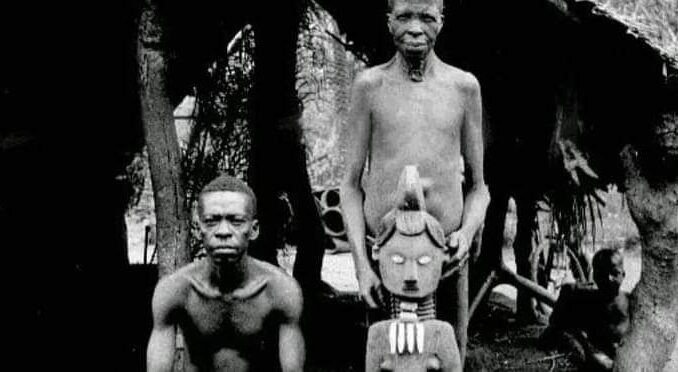

How People Became Osu In Igbo Land And benefits of being Osu.
The fight for the abolishment of the Osu Caste System goes back in time to the days of Nnamdi Azikiwe who in his historic address to the defunct Eastern Nigeria House of Assembly in 1956, described the system as “devilish and uncharitable to brand any human being with a label of inferiority due to the accidents of history”.
What is the Osu caste system?
The Osu Caste System is an ancient practice in Igboland that discourages social interaction and marriage with a group of people, referred to as Osu (outcasts). This is because they dedicate these Osu people to the Alusis (deities) and are thus seen as inferior to the Nwadiala (free-borns).
This system has been traced back to a time when people were offered to the deities to clean the land from an abomination. Another view on the historical perspective of the Osus puts them as defiant people who simply refuse to head to the orders of the king or the decision of the community.
How People Became Osu
In Igboland, there were three major ways one can become Osu.
For protection.
A communal decision.
Parentage.
For Protection: In the olden days some deeds warranted the death penalty and other lesser actions could lead to ostracizing of the culprit or forcing the person into slavery. If the guilty person desired to remain in that community and evade the penalty, the only way to do that was to pledge self to the deity, and from henceforth he seized from being nwafo(son of the soil) until he died. Lets use the Ikemefuna story in the Chinua Achebe’s — “Things fall Apart” for a case study here. Had Ikemefuna knew he would be used as an exchange for the atrocity committed by his clansmen, he could have dedicated himself to the deity and became free.
Communal Decision: In every community in Igbo land, whoever caused an Osu to bleed automatically become an Osu. If one jumped over the head of Osu, there were sacrifices required of the person or he became Osu. Whoever killed an Osu or caused Osu to die could replace the Osu or he would automatically become an OSu. There were sacred streams in the communities and if any fetched water from such streams, he/she would become Osu. If a man/woman slept overnight at a shrine he/she would become Osu too.
Parentage: Once a man or a woman became an Osu, all the children he/she would produce shall all be Osu’s. This is more like being an Osu from birth. In this case, it is not the choice of the child to decide.
What happens to an Osu?
As an Osu, you’re kept in a state of permanent and irreversible disability and subjected to abuse and discrimination. The Osus are made to live separately from the freeborn and live close to shrines and marketplaces. They are not allowed to have any forms of relations with the Nwadialas.
They even may not break kola nuts at meetings or pour a libation or pray to God on behalf of a freeborn at any community gathering.
An Osu cannot marry a free born. It is because of this that there are tons of investigation in Igboland when marriages are announced. Elders from both sides travel and conduct investigations to inquire about the social status of the family.
Then Benefits of Being An Osu
Redemption: A man or woman who was entitled to die could be saved by being Osu.
When great men died in the past, they buried them with human beings because Osu was no longer flawless, Osu could not be used.
Whatever that was brought to the deity in the shrine, the Osu has access to it. It seemed they were the last in the society to lack what they eat.
Osu system in Igboland today
Since modernisation in Igboland, people have criticised the Osu Caste System for defying the basic human rights. A couple of scholars have likened the Osu system to slavery and that it should be abolished.
However, it is still practised in some parts of Igboland, such as Oba in Anambra state. The maltreatment meted out to the Osu has forced many of them to migrate to other countries, abandon marriages and commit crimes against humanity in Igboland

Leave a Reply